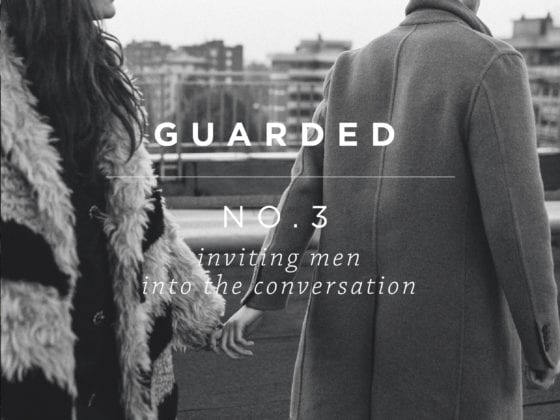We all have different stories. While we often befriend people who have similar stories to our own, part of what makes us valuable to each other is the diversity of our experiences. The differences we bring to the table have potential to help us love our friends in a new way. Though it’s easier and more exciting to laugh and adventure with friends, part of loving them well includes grieving with them during hard times.
You have probably gotten the unexpected text or phone call. Whether it’s the loss of a parent, job or a postponed wedding, there have been difficult circumstances in a friend’s life you just can’t relate to. Even if you have known the friend for many years, the change may make you feel helpless. Often, when we can’t relate, our tendency is to do one of two things — keep our mouth shut or say too much.
When we don’t know what to say, it’s easy to distance ourselves because we’re afraid our words or encouragement are inadequate to lighten the great weight of her loss. So we say nothing at all, or we don’t show up when we could. It’s easy to assume someone else more qualified will be there to comfort and support a friend, especially if we don’t know them all that well. Instead, we should view the circumstance as an opportunity to take the friendship to the next level. When you’re grieving, you can never have too many people supporting you.

The other tendency is to overwhelm the friend with advice and opinions that may not be helpful. Because you’re anxious to say the right thing, you may find yourself rambling to find words that cover silence or tears. You may try to relate to your friend instead of listening to her. I’ve said it so many times before — “I can’t imagine what I’d do” or “I can’t imagine how you feel.” When I speak those words, I take her loss and pain and make it about me. What I cannot imagine is her current reality and those words take the focus off my friend and her grief.
It’s not that I shouldn’t put myself in a friend’s circumstances. Considering how I’d feel may help me give my friend more grace. But when engaging in conversation, I must take time to love her where she is and not where I think I would be.
… I must take time to love her where she is and not where I think I would be.
Instead of swinging back and forth between these two extremes, we need to land in the middle where we interact with a friend’s grief in a truthful and encouraging way because sympathy is not pity and her pain should not be ignored. While we cannot fix the situation, there is something to walking with a friend and loving her in her pain that brings healing.
Nancy Guthrie, author and speaker, says, “There is something profoundly meaningful that in the lowest place of life someone dropped everything going on in their world and chose to enter into yours.”

So what does entering a friend’s world look like? Take her family a meal, clean her apartment, sit and listen while she talks, encourage her through tears or drop a note in the mail if you live states away. Most importantly, be willing to sit in silence, be willing to listen to tears. Even if it seems awkward, giving a friend space to grieve makes her feel safe.
If you don’t know what to say, tell your friend. Being honest will show her how seriously you’re taking the situation. As you move forward in your friendship, give her grace to work through her circumstances. Her emotions may be unpredictable and it may take a while for her to process it all. Chances are, even in her grief, simply giving your time will make her feel less alone in what she faces.
Images via Stephanie Williams for Darling Issue No. 13











